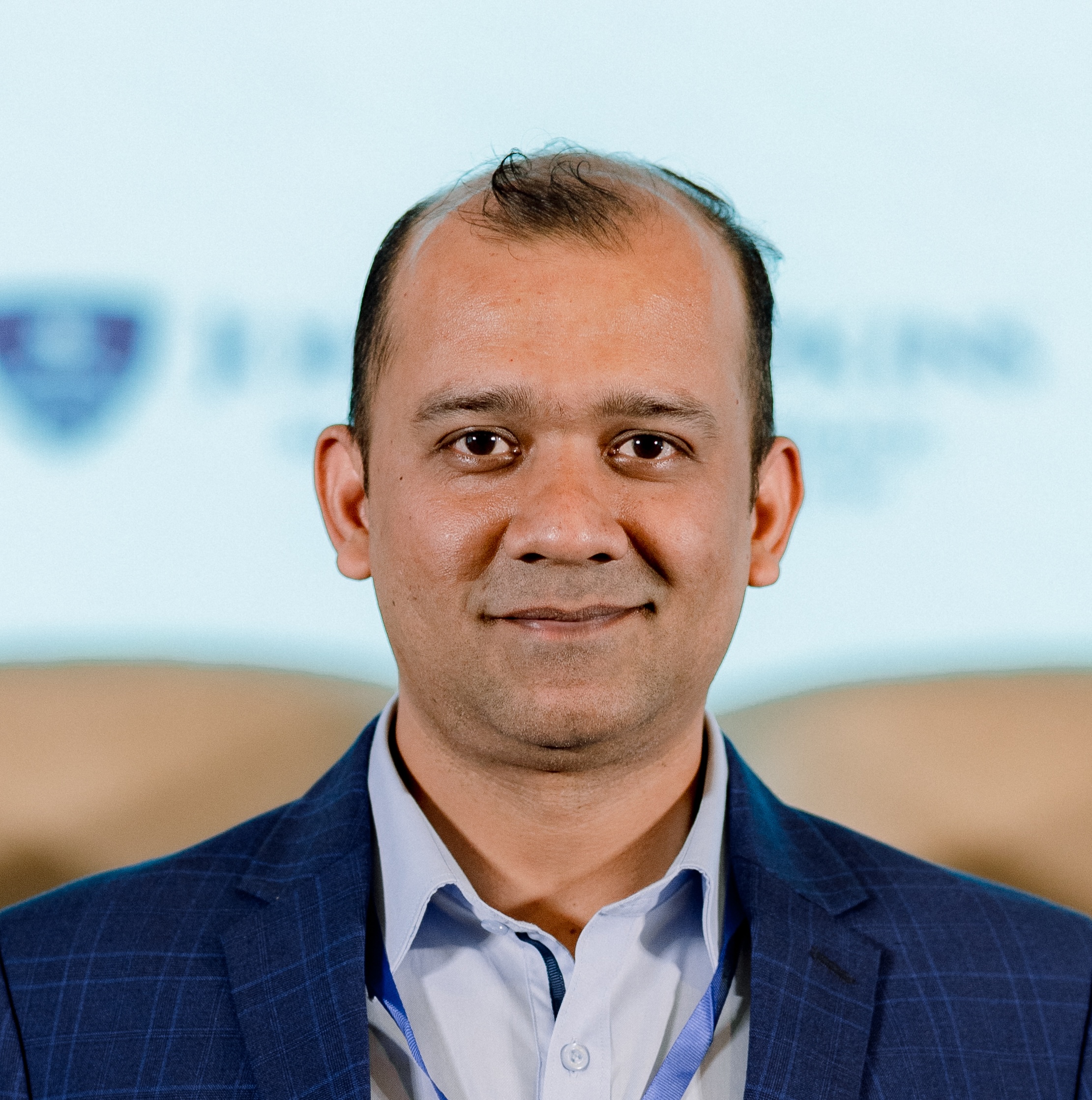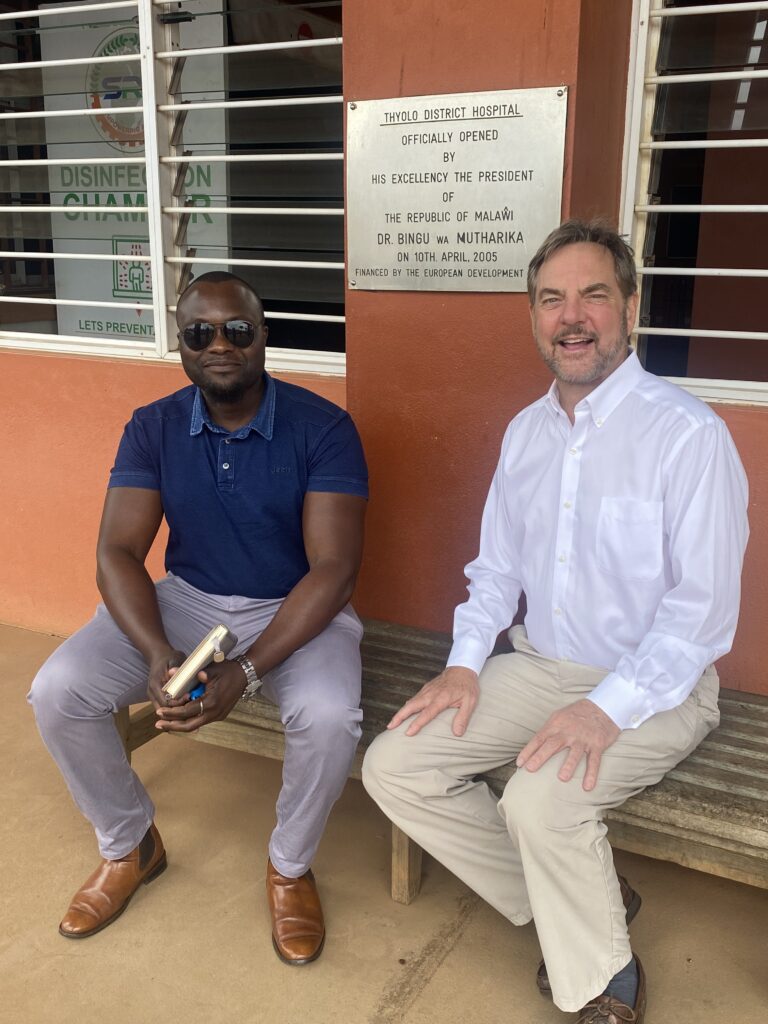Peabody Health Philanthropies
Standardizing Clinical Practice to Save Lives
At Peabody Health Philanthropies, we empower healthcare providers globally with innovative technology to improve quality care, particularly in low-and-middle-income countries.
Who Are We?

Our Mission
Our mission is to improve the quality of healthcare by using scientifically validated patient simulations to serially measure and standardize healthcare practice, lower the cost of care, and improve patient outcomes in low-and-middle-income-countries (LMIC).
Our Vision
A world where access to consistent, high-quality, healthcare is equally available to everyone.
A Bit About Us
Peabody Health Philanthropies is dedicated to transforming healthcare by reducing variation in care and improving patient outcomes worldwide. We believe everyone deserves access to high-quality medical care, regardless of their background or location.
Through the use of AI technology and simulated patient encounters, we help clinicians understand their decision-making and minimize variations in their care quality.
We stand for health equity, global access to quality care, and the power of education to create lasting change. Together, we can build a healthier, fairer world for all.
Three Pillars of Practice Change
Impact And Reach
Global Reach
PHP operates in underserved regions like Malawi, Vietnam, and Bangladesh, improving healthcare for thousands through partnerships with local governments and healthcare providers.
Measurable Impact
PHP's EQIS platform has led to significant improvements in clinical care. In Malawi, over 90% participation rates were achieved, with notable improvements in healthcare performance. Vietnam saw a 50% engagement within the first week of launching EQIS.
Cost Efficiency
PHP focuses on cost-effective, standardized healthcare solutions that reduce errors and improve patient outcomes, making healthcare more sustainable in the regions it serves.
Sustainable Partnerships
Through collaborations with local organizations and government bodies, PHP builds long-lasting improvements in healthcare systems.
The EQIS Solution
Collecting data easily and at scale
The EQIS (E-Patient Quality Improvement and Standardization) Platform represents a significant advancement in healthcare education and management, particularly tailored for low and middle-income countries (LMICs). This multifaceted platform combines innovative technologies and methodologies to transform the way healthcare professionals learn, practice, and improve.



Through EQIS cases, healthcare professionals engage in expertly designed online simulated scenarios that mirror the real-life interactions they have with patients every day. Each scenario is carefully structured around the six core domains of care used in clinical practice: taking a patient history, performing a physical exam, ordering a workup, diagnosing the patient, managing the diagnosis, and arranging follow-up care. These simulations offer a practical, immersive experience that reinforces critical thinking and clinical reasoning.
Throughout six rounds of simulated cases, the EQIS platform captures every clinical decision made by the participant. This detailed data on participant decision-making is invaluable for evaluating healthcare outcomes and identifying opportunities for improvement. To foster professional growth and reflection, participants can also compare their scores anonymously with their peers—helping them better understand their performance and encouraging continuous learning.
A key feature of EQIS is its real-time, personalized feedback. After each clinical decision, participants receive immediate insights into their choices, complete with references, patient responses, and evidence-based explanations. This timely feedback enables healthcare professionals to refine their approach and apply what they’ve learned to future patient care scenarios.
Our Team
Our Team: Vietnam

Huong Luu Thu, MIPH
Project Leader EQIS

Huong Luu Thu, MIPH
Project Leader EQIS
- Email:info@example.com

Doan Thi Thuy Duong, PhD
Project Manager EQIS

Doan Thi Thuy Duong, PhD
Project Manager EQIS
- Phone:+1 (859) 254-6589
- Email:info@example.com

Dr. Nguyen Thi Thuy Dung
coordinator for the EQIS project

Dr. Nguyen Thi Thuy Dung
coordinator for the EQIS project
- Phone:+1 (859) 254-6589
- Email:info@example.com

Nguyen Chau Anh
COORDINATOR FOR THE EQIS PROJECT

Nguyen Chau Anh
- Phone:+1 (859) 254-6589
- Email:info@example.com
Our Team: Bangladesh

Dr. Farhana Ahmad, MD
Project Leader

Dr. Farhana Ahmad, MD
Project Leader

Dr. Sifat Binte Ibrahim, MD
Project Manager

Dr. Sifat Binte Ibrahim, MD
Project Manager

Nabidul Haque Chowdhury, MS
Technical Lead

Nabidul Haque Chowdhury, MS
Technical Lead

Shafiqul Islam
DATA ANALYST

Shafiqul Islam
- Phone:+1 (859) 254-6589
- Email:info@example.com
Our Team: Malawi

Dr. Mwayi Madanitsa, MD
Project Leader, Malawi University of Science and Technology (MUST)

Dr. Mwayi Madanitsa, MD
Project Leader, Malawi University of Science and Technology (MUST)

Annielisa Majamanda
Project Manager, Malawi University of Science and Technology (MUST)

Annielisa Majamanda
Project Manager, Malawi University of Science and Technology (MUST)

Dr. Bennett Kankuzi, PhD
Technical Lead, Malawi University of Science and Technology (MUST)

Dr. Bennett Kankuzi, PhD
Technical Lead, Malawi University of Science and Technology (MUST)
Advisory Board
Advisory board members with their professional
backgrounds and how they guide PHP’s technology and strategic
direction.

Ashok Sudarsanam
Associate Vice President
- Email:info@example.com

Bao Trong
Founder/CEO
Med2Lab Inc.

John Peabody
Engineer
Our Partners
Collaborating for a healthier future.











Global Presence
Together, we leverage our collective strengths to develop and implement innovative solutions that address the most pressing healthcare challenges in LMICs. Through our partnerships, we create sustainable and scalable models that empower healthcare providers and improve patient outcomes.
- PHP is focused on enhancing maternal and child healthcare in Malawi through the EQIS platform, partnering with the Malawi University of Science and Technology. The university has developed its own software to integrate with EQIS, improving clinical training for healthcare providers. The project has achieved over 90% participation rates, standardizing clinical practices and reducing medical errors.
In Bangladesh, PHP is collaborating with the Projahnmo Research Foundation and the Elias and Sultana Foundation on a project aimed at improving maternal and pediatric care. The initiative uses simulation-based training to enhance clinical decision-making, with a focus on AI and telemedicine to expand access to quality care in rural areas.
- PHP is partnering with Vinmec and VinUni in Vietnam to implement the EQIS platform for primary healthcare and pediatric services. Vinmec developed its own software for healthcare training, and PHP is expanding its reach to other hospitals across the country. The project saw rapid engagement, with nearly 50% participation within the first week, improving clinical care quality through standardization and professional development.
Legacy of Giving
We are honored to be recognized as part of VinUniversity’s “Legacy of Giving”, celebrating five years of excellence in education, innovation, and impact.
A heartfelt thank you to VinUni for this incredible recognition, and to all of our partners who have supported Peabody Health Philanthropies (PHP) in advancing healthcare education and training in Vietnam. Seeing John Peabody MD, PhD and Camellia Ngo Peabody JD and PHP at the center of this wall is a powerful reminder of what collaboration, generosity, and shared vision can achieve.
As we step into the Lunar New Year, we look forward to deepening our work with VinUni and continuing to drive meaningful change in global healthcare. Thank you, Huong, and the entire VinUni team for this meaningful honor.
Wishing everyone health, success, and prosperity in the year ahead!

Quantifying Global Healthcare Quality
Over the last few years, we have seen a growing interest in measuring the quality of healthcare in LMICs. This measurement of care stems from the knowledge that improving education and healthcare quality is one of the fastest ways to improve the quality of life for individuals throughout the world and that clinical vignettes are a valid way of measuring physician practice (JAMA. 2000;283(13):1715-1722. doi:10.1001/jama.283.13.1715).
For the last decade, we have been focused on improving our approach to measuring the quality of healthcare in a way that is repeatable, sustainable, and measurable. Measuring the quality of healthcare might seem elusive, with many studies relying on patient-reported satisfaction or other subjective data, but it is essential to understand how physicians make decisions in order to help train them to make better decisions and save more lives.
In a recent publication of a UNICEF Quantified Quality Metric (QQM) study covering 7 rounds of measurement and feedback, it was reported that with measurement and feedback healthcare quality increased in the following three areas: structural quality, content of care, and outcome quality. The increases in quality of care reported are almost identical to the increases in quality of care that we find in our own studies. With a 2-3% increase in quality of care per round, the UNICEF study reported a 14% increase overall in quality of care.
In one of our current studies in Malawi, we have seen a very similar rate of increase in measured quality of care. In just 3 rounds of cases, we have seen an overall increase in care quality score of 4.6%.
PHP is particularly excited about the increase in the specific domain scores reported by UNICEF. Specifically, they reported an increase of 21% in the quality and accuracy of diagnosis over 6 rounds of data collection. In our own study, we have seen a similar change of 12% increase in 3 rounds of data collection. Looking forward, we expect to see similar changes in physician behavior in our projects in Vietnam and Bangladesh. As these projects progress, we look forward to publishing our findings to accelerate the sustainable change we are bringing.











